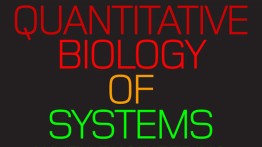Quantitative Biology of Systems: A Lecture by Jason Banfelder ChE'93
Thursday, April 17, 2014, 6 - 7pm

Jason Banfelder ChE'93 M.ChE'96 will speak on "Quantitative Biology of Systems: When Engineering Methods Meet Biomedical Research" for The Theodore, Mary and Sara Kraut Lecture in Chemical Engineering.
Jason Banfelder is an Assistant Professor and Technology Engineer in the Institute for Computational Biomedicine and the Department of Physiology and Biophysics at the Weill Cornell Medical College. He is responsible for the design, implementation, and management of high performance computing, advanced visualization, and software infrastructure for scientific computing applications and programs such as precision medicine, epigenomics, molecular modeling and biological network analysis. Prior to joining Cornell in 2003, Jason spent ten years in the oil and gas industry, working on real-time process monitoring and control in the refining and power generation sector. He holds a Bachelor’s and Master’s degree in Chemical Engineering from The Cooper Union.
Located in the Frederick P. Rose Auditorium, at 41 Cooper Square (on Third Avenue between 6th and 7th Streets)




